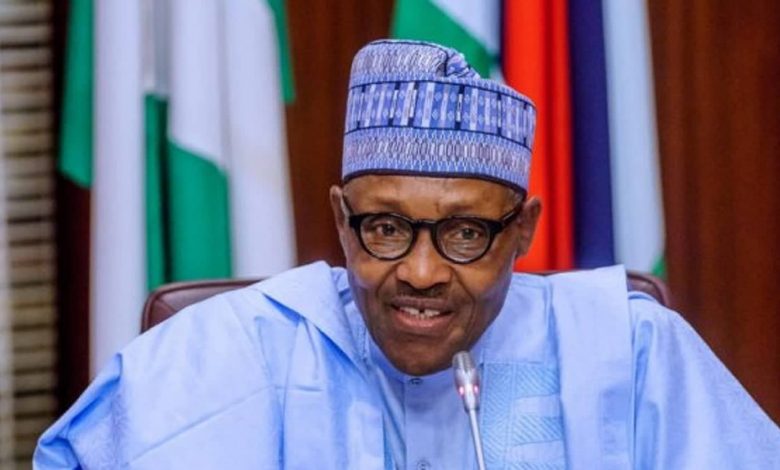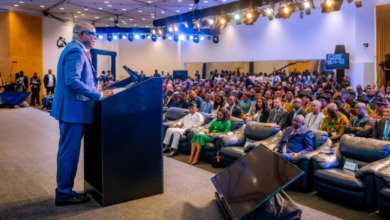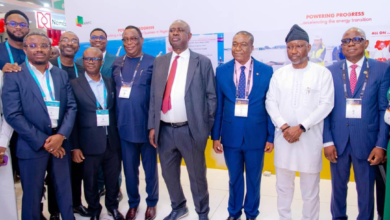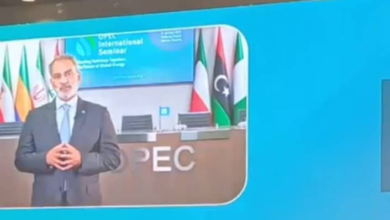FG Inaugurates the National Oil and Gas Excellence Centre

President Muhammadu Buhari on Thursday inaugurated the National Oil and Gas Excellence Centre (NOGEC).The center which was established to ensure transparency in the Nigerian oil and gas sector is expected to serve as an integrated resource complex to drive safety, value and cost efficiency in the industry, as well as strengthen Nigeria’s position as regional leader in the oil and gas industry. The centre will reside at the headquarters of the Department of Petroleum Resources (DPR) in Lagos. There will be a few functions within the NOGEC including a Search, Rescue and Surveillance (SeRAS) centre, a National Improved Oil Recovery Centre (NIORC), a Dispute Resolution Centre (DRC), Competence Development Centre (CDC) and Integrated Data Mining and Analytics Centre (IDMAC).
Transparency and accountability is critical in the extractives industry, which sustains the Nigerian economy. There have been some attempts to address this by government but there are still major gaps to be addressed. While we appreciate the government’s efforts at seeking to ensure transparency in the Nigerian oil and gas sector, we are of the view that the most critical step in this direction will be a complete assent to the long debated Petroleum Industry Bill. The Bill among other things proposes the restructuring of the Nigerian National Petroleum Corporation (NNPC) and the Petroleum Products Pricing Regulatory Agency (PPPRA). The unbundling of the NNPC is aimed at eliminating government/political interference. The bill also proposes the establishment of an agency known as the Nigerian Upstream Regulatory Commission which will be responsible for the technical and commercial regulation of upstream petroleum operations alone.
The Petroleum Industry Bill (PIB) was first introduced to the National Assembly in December 2008. A presidential committee set up in 2007 to look into the oil and gas sector came up with this bill, which aims to improve transparency at the NNPC and increase Nigeria’s share of oil revenue. Drafts of the bill, however, became very contentious due to objections from the international oil companies (IOCs) and the Nigerian National Petroleum Corporation (NNPC). Consequently, the bill was never passed into law. Towards the end of 2015, the PIB was amended to speed up its passage and was broken into different bills, one of which was the PIGB, to address the governance framework of the oil industry. The Senate President noted that the plan was to expedite the aspects of the old law that were not controversial while the controversial areas could be placed on hold. The two houses passed the PIGB in 2018 but the President did not sign the bill till it ran out of time. In September last year, the President sent a version of the bill to the Senate for consideration and passage.
With more than a decade of deliberations and revisions, it will be a great relief to all stakeholders if the Bill is finally passed into law. Many stakeholders hold strongly that new investments in the oil sector is dependent on the passage of the PIB which would take a more holistic approach in addressing issues around the fiscal terms especially following the passage of the Deep Offshore and Inland Basin Production Sharing Contracts (amendment) Bill, 2019 (PSC Amendment Bill).




